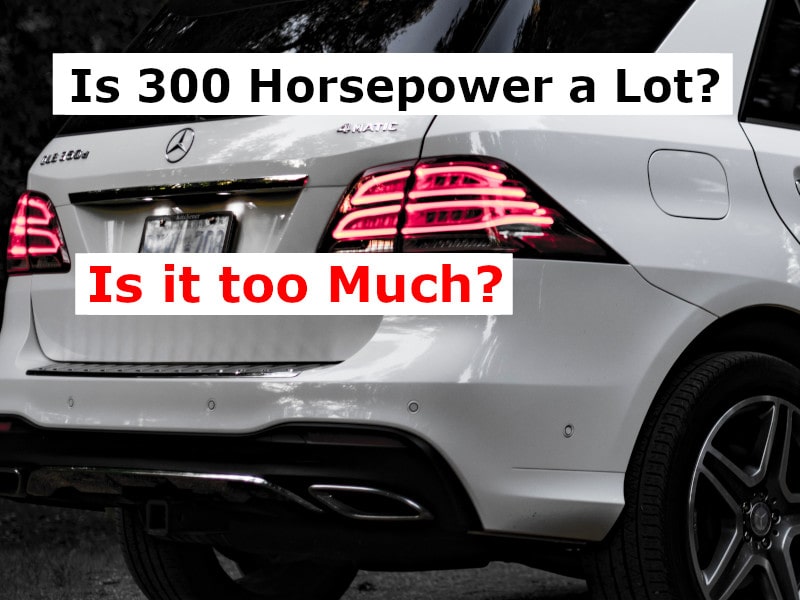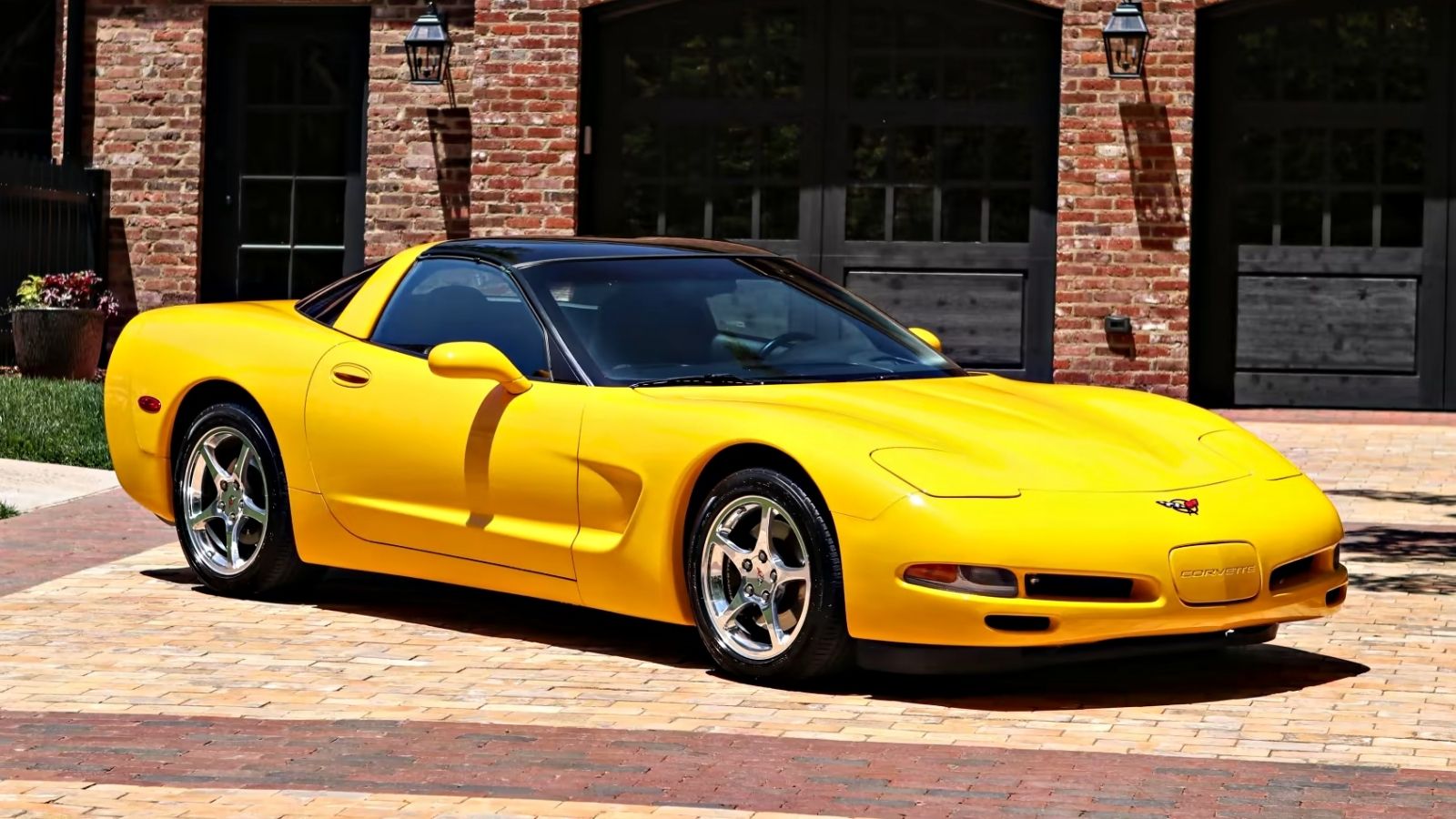Fantastic Tips About Is 300 Horsepower Good

Is 300 Horsepower A Lot? It Too Much?
So, You're Asking If 300 Horsepower Is Good? Let's Dig In!
1. Horsepower 101
Okay, so you're pondering the age-old question: is 300 horsepower good? Well, buckle up, buttercup, because the answer isn't a simple yes or no. Its more like a "depends on what you're trying to do" kind of thing. Think of horsepower as the muscle of your engine, the thing that dictates how quickly your car can accelerate and how easily it can maintain speed, especially when hauling stuff or climbing hills.
Essentially, horsepower measures the rate at which work is done. The higher the horsepower, the more work the engine can perform in a given amount of time. But its not just about raw power; its about how that power is delivered and what kind of vehicle it's propelling. A 300-horsepower engine in a tiny sports car is going to feel dramatically different than the same engine in a massive pickup truck.
Consider the context. Imagine a chihuahua trying to pull a sled dog team. Cute, but wildly inefficient. Similarly, a very low horsepower engine struggling to move a heavy vehicle will result in sluggish performance and likely poor fuel economy because it will be working overtime. That's why understanding the interplay between horsepower, vehicle weight, and intended use is crucial. It all boils down to finding the right balance.
Let's also be realistic. A car with 300 horsepower isnt going to win any drag races against a Tesla Plaid, but it's certainly no slouch. Its about finding that sweet spot where you have enough power to enjoy the driving experience without constantly worrying about fuel consumption or whether youre going to spin out every time you touch the gas pedal. So, keep reading, and let's figure out if 300 horsepower is your personal Goldilocks zone.
Chevrolet 327 Engine
What Kind of Vehicle Are We Talking About? The Big Question!
2. Car Size Matters
The crucial question, the elephant in the room, the guacamole in the burrito—what vehicle are we putting this 300-horsepower engine in? A 300-horsepower engine in a Mazda Miata? Youre basically driving a rocket on wheels! In a Ford F-150? Pretty standard, maybe even a bit underpowered depending on what you're hauling.
Weight is the critical factor here. A lighter vehicle needs less power to achieve the same level of performance as a heavier one. That's why a smaller sports car with 300 horsepower can feel incredibly quick and agile, while a large SUV with the same horsepower might feel adequate but not particularly exciting.
Consider the typical uses of each type of vehicle too. A sports car is designed for fun, spirited driving, whereas an SUV is more often used for hauling passengers and cargo. Therefore, the expectations for performance are different. We expect a sports car to accelerate quickly and handle nimbly, while we might only expect an SUV to have adequate power for merging onto the highway and climbing hills. Think of it like this: Would you judge a fish on its ability to climb a tree?
So, before you get too hung up on the number "300," consider the size and weight of the vehicle. The same horsepower figure can translate into vastly different driving experiences depending on the vehicle it's propelling. It's all about matching the power to the purpose.
What Do You Want to Do With It? Usage Scenarios
3. Daily Driving vs. Weekend Warrior
Think about your daily driving routine. Are you mostly commuting in stop-and-go traffic? Or are you frequently embarking on long road trips? Do you need to tow a boat or a trailer? Your answers to these questions will heavily influence whether 300 horsepower is sufficient for your needs.
For daily commuting, 300 horsepower is likely more than adequate for most people. It provides ample power for merging onto highways, passing other vehicles, and generally keeping up with traffic. However, if you regularly tow heavy loads or live in a mountainous area, you might want to consider something with a bit more grunt.
On the other hand, if you enjoy spirited driving and occasional track days, 300 horsepower can be a lot of fun, especially in a lighter vehicle. It provides a good balance of power and handling, allowing you to push the car without feeling like you're constantly on the edge of control. It really depends on your personal preference and what you want to get out of the driving experience. Some people prefer having all the power in the world, while others are perfectly happy with a more modest setup.
Ultimately, the ideal horsepower figure depends on your individual needs and preferences. There's no one-size-fits-all answer. The key is to consider your driving habits, the type of vehicle you're interested in, and what you want to accomplish with it. Only then can you make an informed decision about whether 300 horsepower is right for you.

Fuel Economy
4. Horsepower vs. MPG
Let's not forget the practical side of things — fuel economy. More horsepower often translates to lower miles per gallon (MPG), although advancements in engine technology have made this less of a hard-and-fast rule. Still, it's something to consider. No one wants to spend a fortune at the pump just to show off a little extra power.
Generally, a 300-horsepower engine can achieve reasonable fuel economy in a mid-size sedan or SUV. But if you're constantly using that power, expect your MPG to drop. It's all about how you drive. A gentle foot on the accelerator will yield better results than constant jackrabbit starts and high-speed cruising.
Many modern vehicles with around 300 horsepower also incorporate fuel-saving technologies like cylinder deactivation or turbocharging. These features can help improve fuel economy during normal driving conditions without sacrificing power when you need it. Make sure to do your research and compare the fuel economy ratings of different vehicles before making a decision. The sticker MPG is just a guideline. Your driving habits can significantly affect your real-world fuel consumption.
Think about it this way: do you really need to accelerate like you're trying to break the sound barrier every time you leave a stoplight? Probably not. A little restraint can go a long way in terms of saving you money at the gas station. Ultimately, finding the right balance between power and fuel economy is a personal decision. It depends on your priorities and how much you're willing to spend on fuel.

Alternatives to 300 Horsepower
5. Is More Always Better? (Spoiler Alert
Okay, so 300 horsepower might not be exactly what you need. What are your alternatives? If you need more power, you could look at vehicles with 350, 400, or even 500 horsepower. But be prepared for a hit to your fuel economy and potentially higher insurance costs. On the other hand, if you're looking for better fuel economy and don't need a ton of power, you could consider something with around 200 to 250 horsepower. Many modern engines in that range offer excellent performance and impressive MPG.
Another option is to consider a hybrid or electric vehicle. These vehicles often provide good acceleration and excellent fuel economy or zero emissions. They might not have the same raw horsepower numbers as a traditional gasoline engine, but they can still offer a satisfying driving experience. Electric motors, in particular, provide instant torque, which can make them feel surprisingly quick off the line.
Dont overlook the importance of other factors besides horsepower. Handling, braking, and overall vehicle dynamics are just as important, if not more so, than raw power. A well-balanced car with 250 horsepower can be more fun to drive than a poorly handling car with 350 horsepower. Consider taking test drives of different vehicles to see what feels best for you. Don't just rely on the numbers on paper; experience the cars firsthand.
Ultimately, the best alternative depends on your individual needs and preferences. There's no right or wrong answer. The key is to do your research, consider your priorities, and choose the vehicle that best suits your lifestyle. Remember, horsepower is just one piece of the puzzle. A great driving experience is about so much more than just raw power. Its about the whole package.

Is 300 Horsepower A Lot For Daily Driving And Performance? Ran When
FAQs About Horsepower
6. Frequently Asked Questions (Because We Know You Have Them!)
Q: Will 300 horsepower let me win every street race?
A: Probably not. While 300 horsepower is definitely respectable, there are plenty of faster cars out there. Winning street races depends on many factors, including driver skill, vehicle weight, and modifications. But hey, it'll definitely give you a fighting chance!Q: Does more horsepower always mean more fun?
A: Not necessarily. More horsepower can be fun, but it's not the only factor that determines a fun driving experience. Handling, responsiveness, and overall vehicle balance are also crucial. A well-balanced car with less horsepower can be more enjoyable to drive than a overpowered car with poor handling.Q: Can I add more horsepower to my car later?
A: Yes, you can! There are many aftermarket modifications you can do to increase your car's horsepower, such as adding a turbocharger, supercharger, or performance exhaust system. However, be aware that these modifications can be expensive and may void your car's warranty. Do your research and consult with a qualified mechanic before making any modifications.Q: Is 300 horsepower enough to tow a boat?
A: It depends on the size and weight of the boat. A small fishing boat? Probably. A large cabin cruiser? Definitely not. Check your vehicle's towing capacity and make sure it's sufficient for the weight of your boat and trailer. Safety first!
